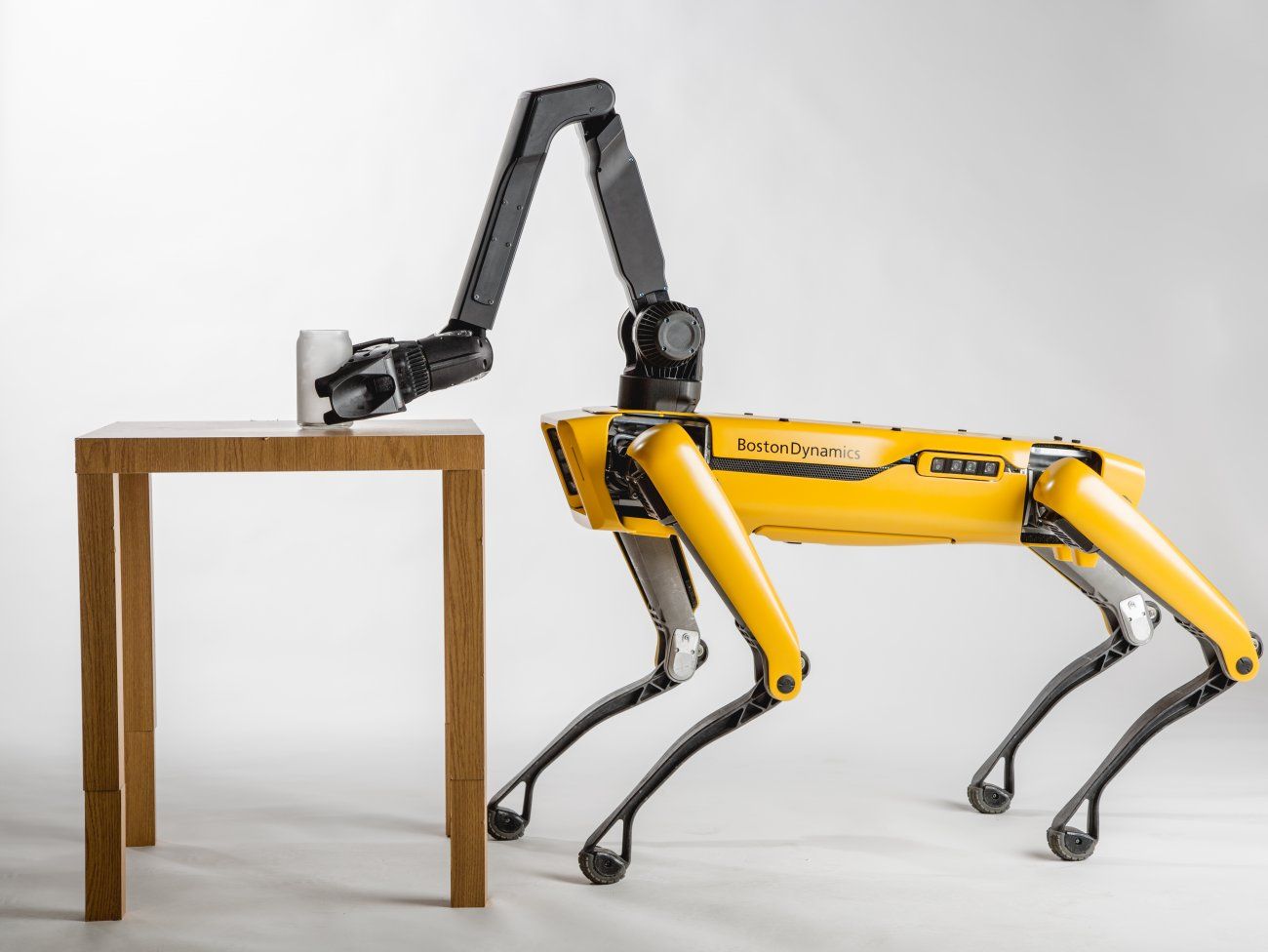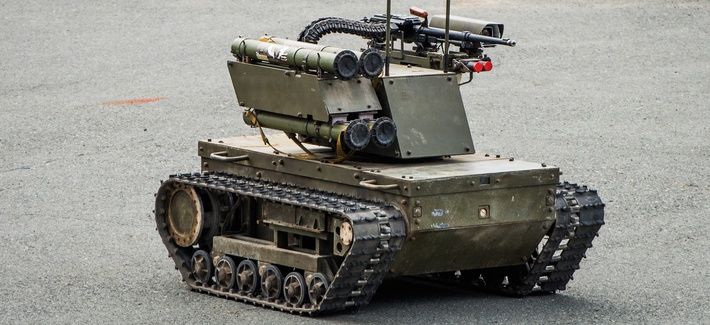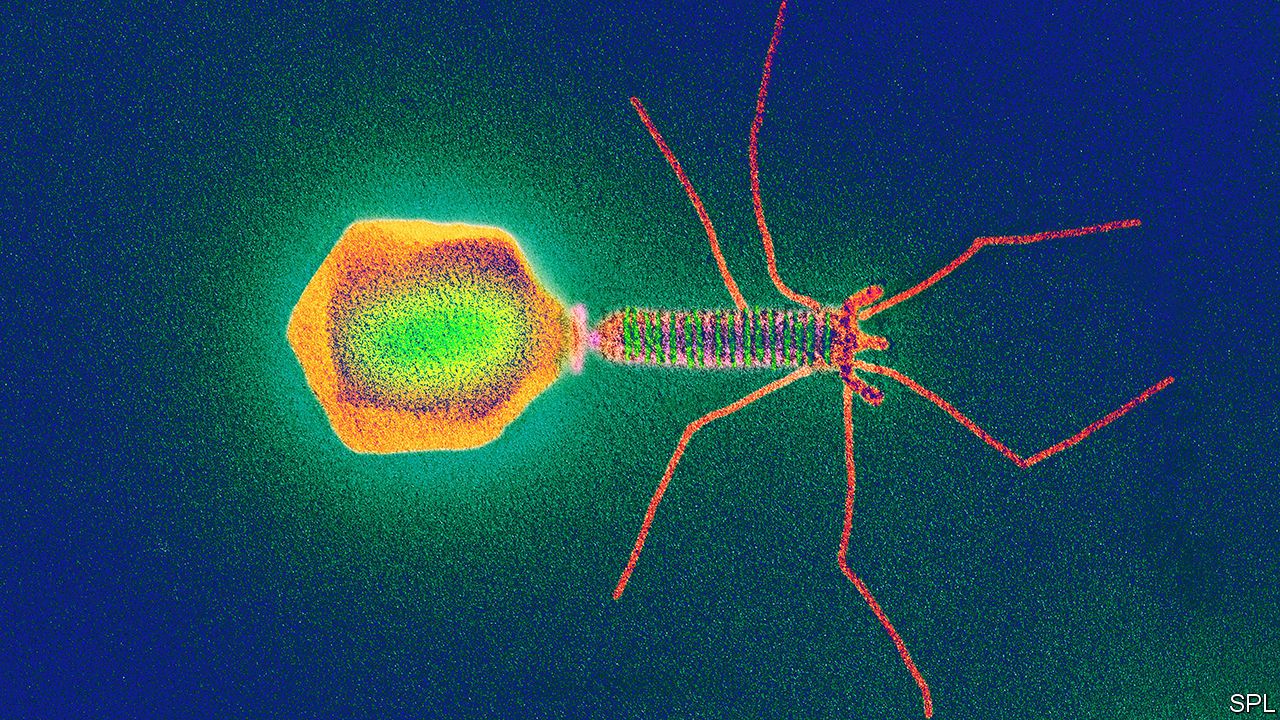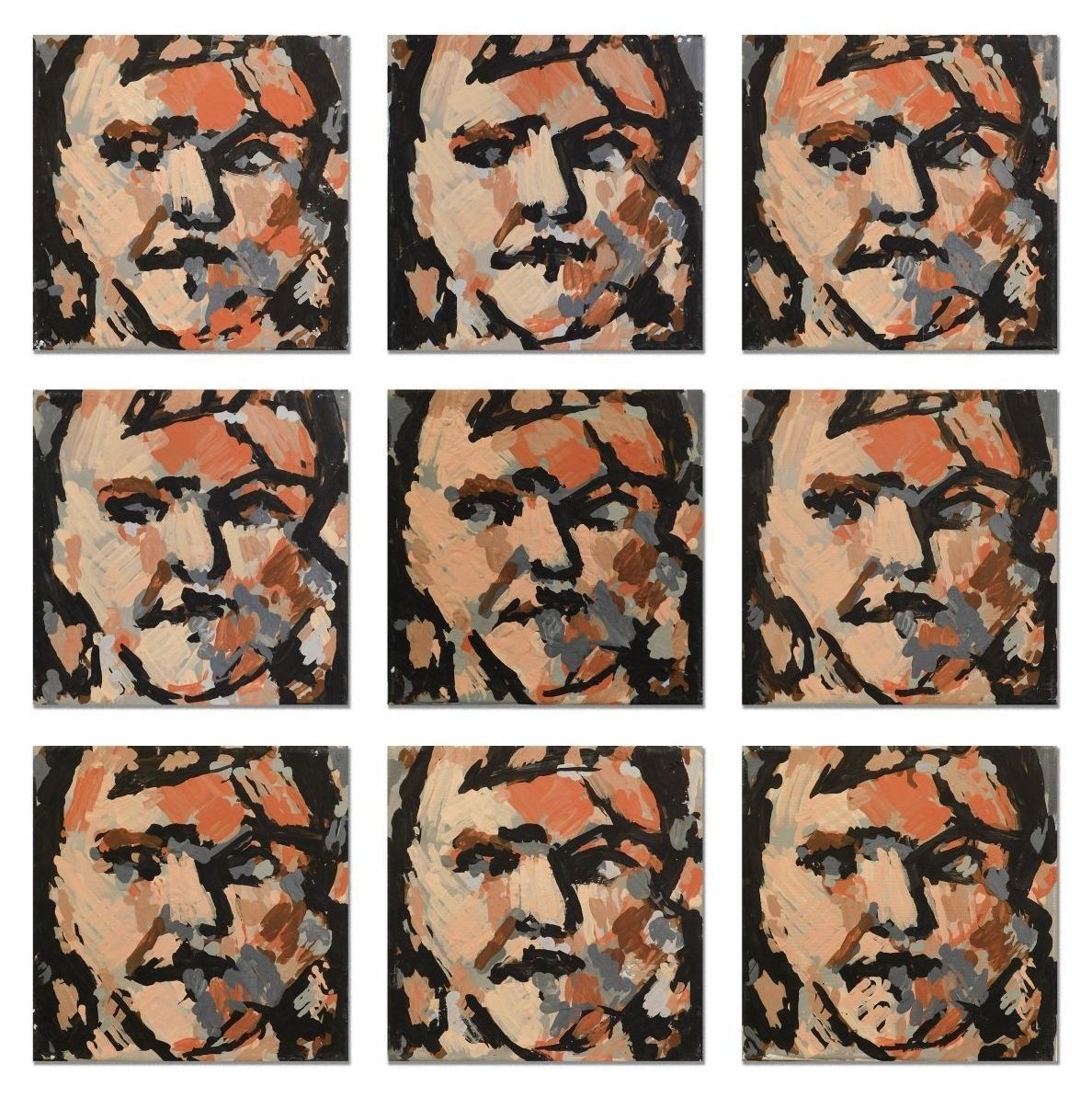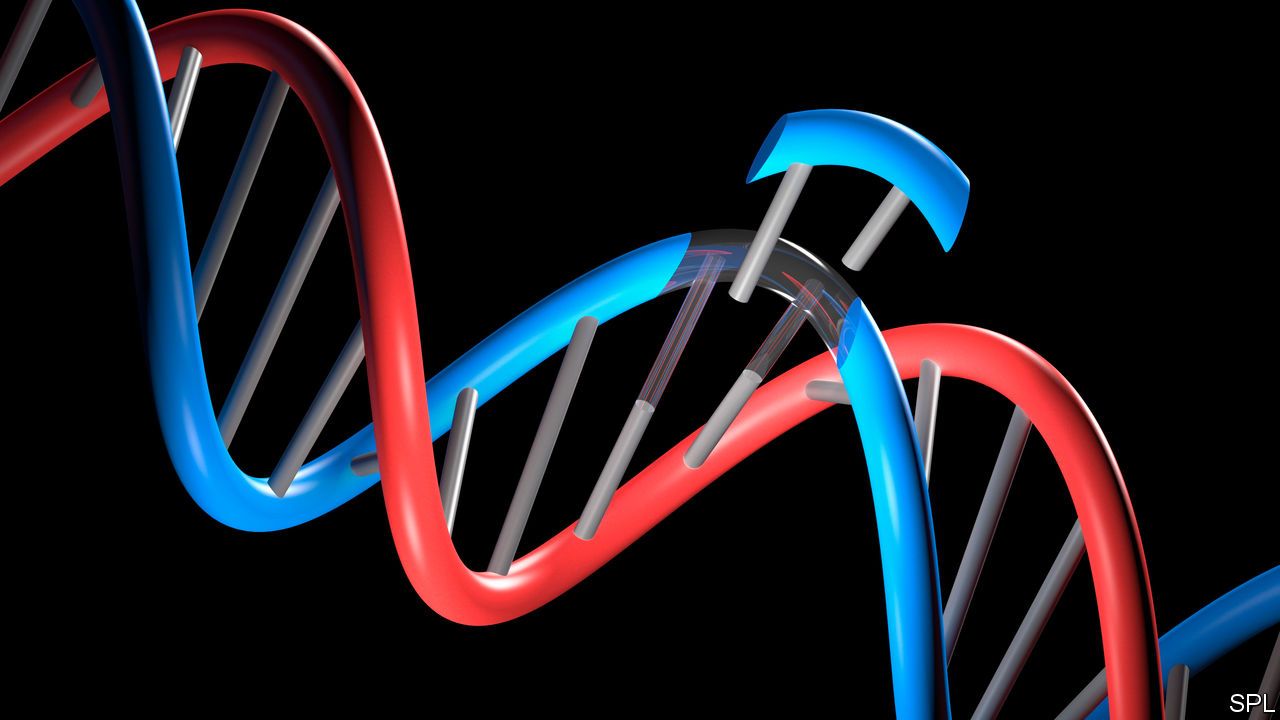Page 9646
Jul 21, 2018
Boston Dynamics is Gearing Up to Build and Army of Robot Dogs
Posted by Dan Kummer in category: robotics/AI
Robot dogs are coming.
Boston Dynamics’ SpotMini robot dog will be getting to work in a variety of roles by the middle of 2019.
Jul 21, 2018
Here’s How the Russian Military Is Organizing to Develop AI
Posted by Dan Kummer in categories: military, robotics/AI
Harking back to Soviet big science, a 10-point plan calls for new organizations and focus areas, from job training to a giant new R&D campus.
The Russian Ministry of Defense is pursuing artificial intelligence with an urgency that has only grown since Vladimir Putin’s “rule the world” speech in September. But after several years of watching American and Chinese researchers accumulate breakthroughs and funding, while Russia continues to lack a relevant high-tech culture, Ministry leaders have decided that if they can’t outspend their global competitors, perhaps they can out-organize them.
So in March, the MOD — along with the Ministry of Education and Science of the Russian Federation, or MES ; and the Russian Academy of Sciences — gathered domestic and international developers and users at a conference intended to take stock of the world’s AI prowess, and develop plans to focus Russia’s academic, scientific, and commercial communities to compete.
Continue reading “Here’s How the Russian Military Is Organizing to Develop AI” »
Jul 21, 2018
How Artificial Intelligence Will Reshape the Global Order
Posted by Dan Kummer in categories: economics, military, robotics/AI, singularity
Just as competition between liberal democratic, fascist, and communist social systems defined much of the twentieth century, so the struggle between liberal democracy and digital authoritarianism is set to define the twenty-first.
The debate over the effects of artificial intelligence has been dominated by two themes. One is the fear of a singularity, an event in which an AI exceeds human intelligence and escapes human control, with possibly disastrous consequences. The other is the worry that a new industrial revolution will allow machines to disrupt and replace humans in every—or almost every—area of society, from transport to the military to healthcare.
There is also a third way in which AI promises to reshape the world. By allowing governments to monitor, understand, and control their citizens far more closely than ever before, AI will offer authoritarian countries a plausible alternative to liberal democracy, the first since the end of the Cold War. That will spark renewed international competition between social systems.
Continue reading “How Artificial Intelligence Will Reshape the Global Order” »
Jul 21, 2018
Scientists reverse aging-associated skin wrinkles and hair loss in a mouse model
Posted by Nicholi Avery in categories: biotech/medical, genetics, life extension
BIRMINGHAM, Ala. — Wrinkled skin and hair loss are hallmarks of aging. What if they could be reversed?
Keshav Singh, Ph.D., and colleagues have done just that, in a mouse model developed at the University of Alabama at Birmingham. When a mutation leading to mitochondrial dysfunction is induced, the mouse develops wrinkled skin and extensive, visible hair loss in a matter of weeks. When the mitochondrial function is restored by turning off the gene responsible for mitochondrial dysfunction, the mouse returns to smooth skin and thick fur, indistinguishable from a healthy mouse of the same age.
“To our knowledge, this observation is unprecedented,” said Singh, a professor of genetics in the UAB School of Medicine.
Jul 21, 2018
Hyperloop, the superfast ‘vacuum train,’ is coming to China
Posted by Dan Kummer in categories: Elon Musk, transportation
The super fast, futuristic transportation was first envisioned by Elon Musk in 2013. Now it’s coming to China.
Jul 21, 2018
Viruses that attack bacteria have evolved to collaborate
Posted by Dan Kummer in categories: biotech/medical, genetics
Some viruses sacrifice themselves so that others may multiply.
THAT predators often hunt in packs is a commonplace. Wolves do it. Killer whales do it. Even Velociraptor, a species of dinosaur made famous by “Jurassic Park”, is believed to have done it. These are, or were, all intelligent species, capable of exchanging and interpreting information. But the logic of pack hunting, that many may achieve what one alone cannot, and that individual pack members may perform different roles, does not depend on intelligence. Indeed, evidence has now emerged that this logic applies to viruses, the simplest biological entities of all. It was published this week in Cell, by Edze Westra and Stineke van Houte at the University of Exeter, in England.
The viruses in question are bacteriophages, which “hunt” bacteria. They do not eat their prey. Rather, they take over its genetic apparatus to create replicas of themselves, killing the host as a consequence. To do so they have to penetrate a bacterium’s cell wall and then subvert its internal defences, of which there are several. One of the best known, because it is the basis of an emerging gene-editing technology (see article), is called CRISPR. The CRISPR system detects and cuts up alien DNA. In the wild, such DNA will almost always have come from a virus. To counter this, some bacteriophages have evolved ways of gumming up CRISPR’s cellular machinery. Dr Westra and Dr van Houte have shown that, in essence, such phages collaborate. Some do the gumming. Others hijack the genetic apparatus.
Continue reading “Viruses that attack bacteria have evolved to collaborate” »
Jul 21, 2018
What do these pieces of art have in common? They were all painted by robots
Posted by Dan Kummer in category: robotics/AI
Beauty in binary.
The RoboArt gallery has hosted an art competition for robots and AI for the third year in a row.
Jul 21, 2018
I used a robot mop to clean my floors to see if it could do a better job — and it took care of a thankless household chore with ease
Posted by Dan Kummer in categories: food, robotics/AI
Although i dont really like the idea of a different robot for every job, because you will get nickel and dimed to death.
If you love scrubbing the floors of your kitchen and bathrooms, then don’t get an iRobot Braava Jet 240. If you would rather let a plucky little robot do the mopping for you, then do get one, and leave this thankless household chore behind forever.
Jul 21, 2018
The safety of CRISPR-Cas9 gene editing is being debated
Posted by Dan Kummer in categories: bioengineering, biotech/medical, genetics
When CRISPR-Cas9 is used to edit genomes, off-target DNA damage is more common than previously thought.
A GREAT deal rides on the accuracy of the gene-editing tool known as CRISPR-Cas9. Since its discovery in 2012 it has become popular for tinkering with genomes of all kinds, thanks to its ability to make editing cheap and easy. Firms such as CRISPR Therapeutics, Intellia Therapeutics and Editas Medicine have been built on the idea that it could be used to develop treatments for human diseases. Editas, based in Cambridge, Massachusetts, announced this year that it would work on five new human medicines over the next five years.
In China the technology is already in clinical use. In Hangzhou Cancer Hospital, for example, CRISPR-Cas9 is being employed to engineer immune-system cells removed from patients with cancer of the oesophagus. The hope is that when the engineered cells are returned to a patient’s body, the editing will have improved their ability to attack tumours. More studies involving human beings are expected in other countries for the treatment of beta-thalassaemia, a blood disorder, and Leber’s congenital amaurosis, a form of blindness. Further ahead, there is hope that CRISPR-Cas9 will help treat diseases such as AIDS, cystic fibrosis, Huntington’s chorea and Duchenne muscular dystrophy.
Continue reading “The safety of CRISPR-Cas9 gene editing is being debated” »

